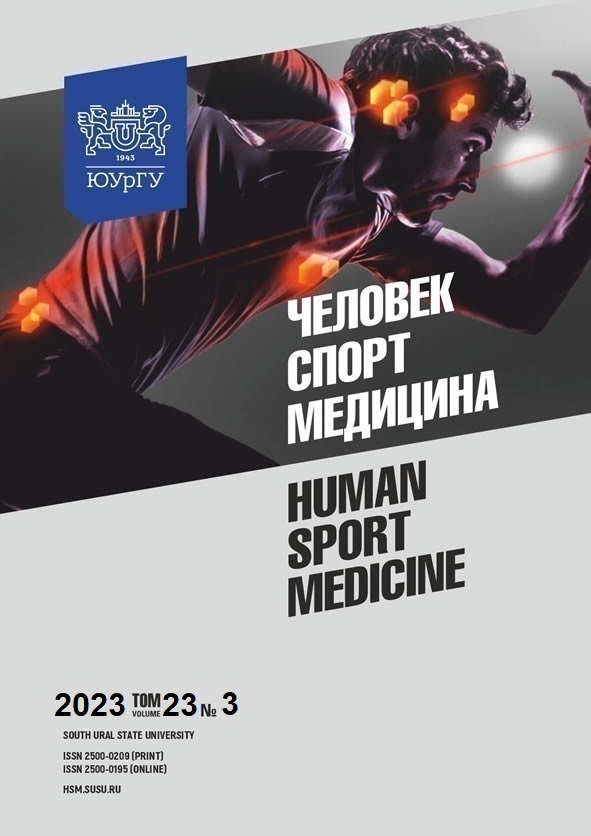COMPREHENSIVE ASSESSMENT OF ADAPTIVE MECHANISMS AS THE BASIS FOR EFFECTIVE RECOVERY
Abstract
Aim. To provide a comprehensive assessment of adaptive mechanisms and to develop personalized rehabilitation programs for the medical and psychological support of athletes. Materials and methods. The study involved equipment-based psychophysiological methods to present stimuli and record the speed and accuracy of responses. Psychophysiological measurements were performed along with body monitoring at rest (BOSLAB system, COMSIB Ltd.). Results. The options for individual rehabilitation programs that include medical and psychological support for elite athletes are proposed based on psychophysiological measurements. Conclusion. Performance enhancement in modern sports requires new psychophysiological technologies for the assessment of adaptive mechanisms and further improvement of training and recovery effectiveness.
References
References on translit
Copyright (c) 2023 Human. Sport. Medicine

This work is licensed under a Creative Commons Attribution-NonCommercial-NoDerivatives 4.0 International License.















